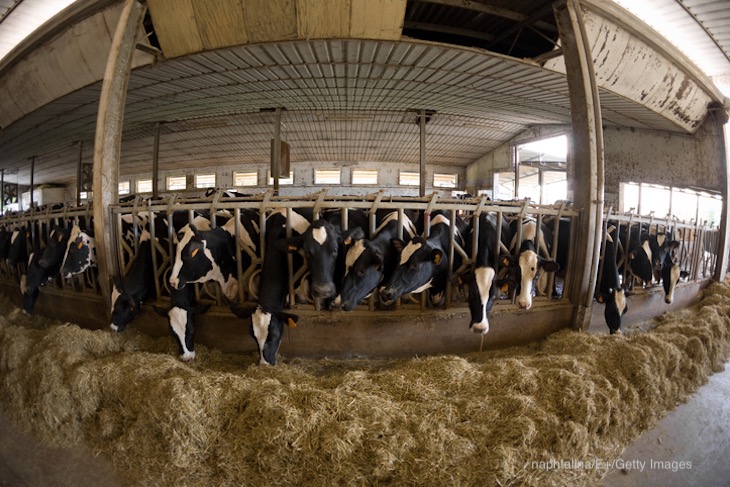A study conducted at the University of Bath has found that factory farming increases the risk of pandemic development. Overuse of antibiotics, low genetic diversity, and a large number of animals increases the risk of animal pathogens transferring to humans.

Viruses and bacteria that jump from animals to humans are called zoonotic diseases. Some zoonotic diseases include bird flu, Campylobacter, Salmonella, E. coli infections, swine flu, and novel coronavirus.
Scientists investigated the evolution of Campylobacter jejuni, a bacteria that is carried by cattle. This pathogen causes is transferred to people who eat contaminated meat and poultry. It causes bloody diarrhea and cause serious illness in those with compromised immune systems and chronic illnesses.
About 1 in 7 people will have a Campylobacter infection at some time in their lives. This pathogen causes three times more cases of foodborne illness than E. coli, Salmonella, and Listeria monocytogenes combined. It is transmitted in the feces of wile animals, chickens, pigs, and cattle.
Their research found that cattle-specific strains of the bacteira emerged at the same time as cattle number increased in the 20th century. The authors say that “changes in cattle diet, anatomy and physiology triggered gene transfer between general and cattle-specific strains with significant gene gain and loss. This helped the bacterium to cross the species barrier and infect humans, triggering a major public health problem.”
And the worldwide food trade along with intensive farming practices give the bacteria the perfect environment to spread around the world, again increasing the risk of pandemic development.
Professor Sam Sheppard from the Miller Center for Evolution at the University of Bath said in a statement “There are an estimated 1.5 billion cattle on Earth, each producing around 30 kg of manure each day; if roughly 20 per cent of these are carrying Campylobacter, that amounts to a huge potential public health risk. Over the past few decades, there have been several viruses and pathogenic bacteria that have switched species from wild animals to humans: HIV started in monkeys; H5N1 came from birds; now Covid-19 is suspected to have come from bats. Our work shows that environmental change and increased contact with farm animals has caused bacterial infections to cross over to humans too.”
A new bill proposed in Congress, called the Farm System Reform Act, could help by banning large factory farms. These farms not only threaten with the development of zoonotic diseases, they also cause air and water pollution and the development of antibiotic resistance.
The bill would set a deadline of 2040 for the phase-out of existing factory farms and provide funds to help farmers transition out of this type of farming. The bill is sponsored by Senator Cory Booker (D-NJ).




